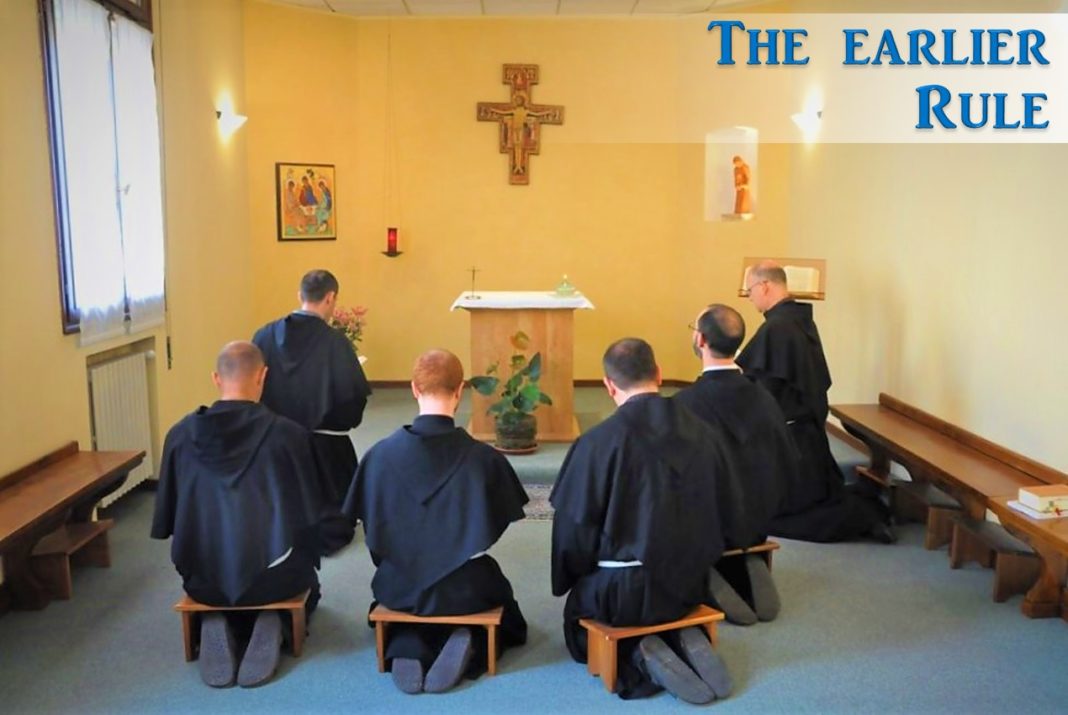In the Earlier Rule, St. Francis of Assisi wrote: “let all the brothers… recite (…) let all the brothers fast…”[1] Certainly this corresponds to the Lord’s teaching and commands: “This kind [of demon] can only come out through prayer” (Mk 9:29). And again: “When you fast, do not look gloomy like the hypocrites” (Mt 6:16)[2].
In our previous reflection we talked about following Jesus Christ in our Franciscan spirituality. Following the Master implies fighting and defeating some demons, especially at the beginning of our journey. Francis knew people’s hearts very well, and he knew that following a lifestyle based on the Gospel was not easy, as it required a fight against our internal demons, demons which could only be overcome with prayer and fasting.
Moreover, before labeling this reflection as something obscurantist or retrograde, ask yourself— what are the internal demons that take away your peace? Fear? Anxiety? The search for fame or power?
The Poverello of Assisi wrote:
“There are many who, while insisting on prayers and obligations, inflict many abstinences and punishments upon their bodies. But they are immediately offended and disturbed about a single word which seems to be harmful to their bodies or about something which might be taken away from them. These people are not poor in spirit, for one who is truly poor in spirit hates himself and loves those who strike him on the cheek.”[3]
If prayer and fasting are not supported by humility, they are in vain, “vanity of vanities,”[4] or simply superficial. Chapter III of the Earlier Rule invites us to return to a Franciscan style of prayer, to a particular style of penance, one that is not based only on external practices but on a profound journey of continual conversion, a style which involves fighting against our internal demons.
St. Francis wrote to the faithful: “All those men and women who are not living in penance (…)”[5]. In translating our texts we sometimes use the word “fasting” instead of the word “penance.” We forget that “fasting” contains a much deeper message than eating or not eating meat on Fridays or during the periods stipulated by St. Francis in the Earlier Rule. But then, what is “doing penance”? How does this concept relate to our reflection of Chapter III? What is “doing penance” for a Franciscan in the 21st century, so far removed from the context in which St. Francis of Assisi lived?
We will reflect on these questions in the next article.
Friar Elio J. ROJAS
[1] Cf. Earlier Rule III; FF 9-12.
[2] Cf. Earlier Rule III, 1; FF 9.
[3] Admonitions XIV, 2-4; FF 163.
[4] Cf. Ecclesiastes 1:2.
[5] Cf. Earlier Exhortation II, 1; FF 178/4.



















